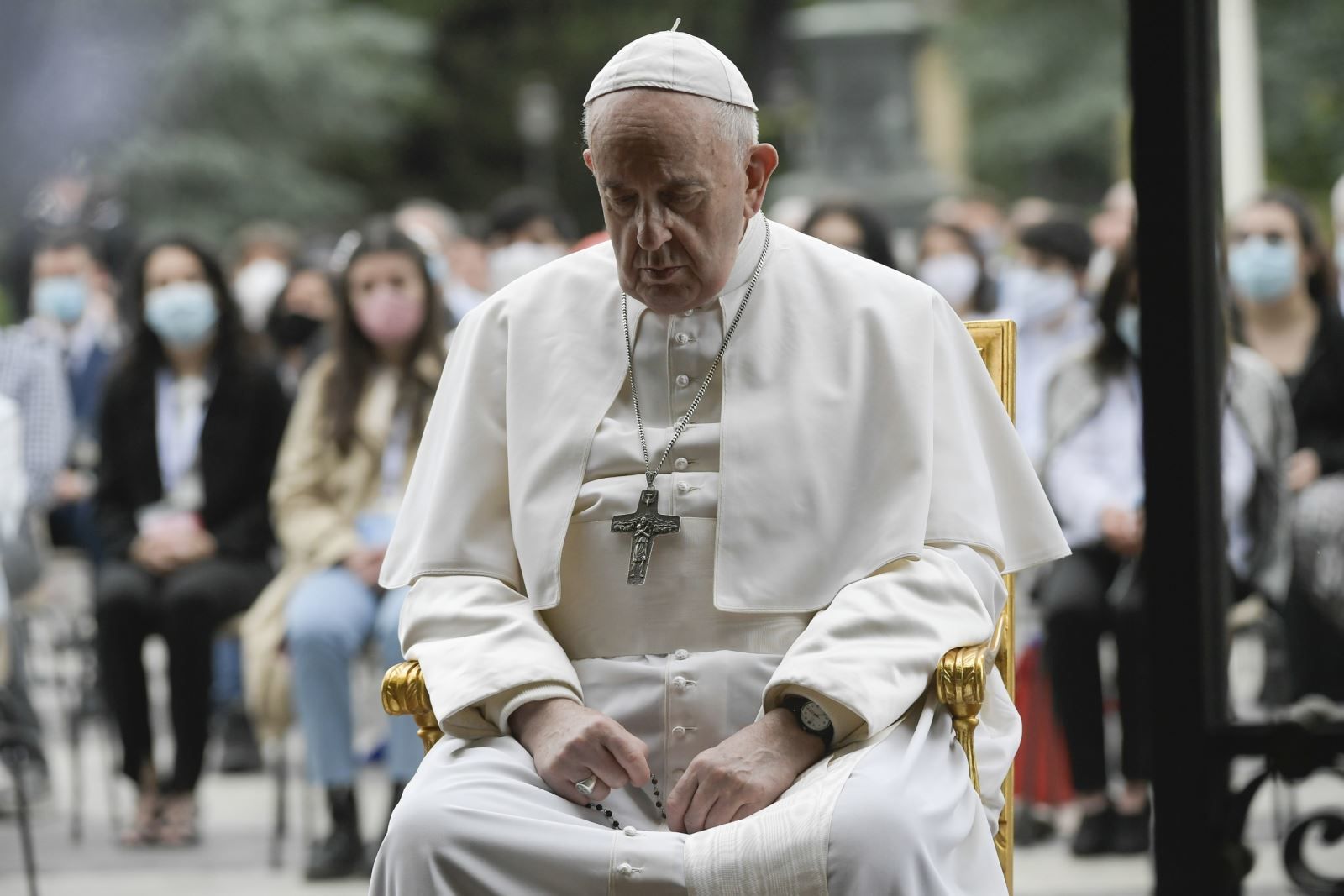
VATICAN CITY (CNS) -- Pope Francis told Catholics in the Holy Land that he knows Holy Week this year is "so overshadowed by the Passion and, as yet, so little by the Resurrection."
In a letter published March 27, Pope Francis told the region's Catholics that he was remembering all of them in his prayers, but in a particular way, "I embrace those most affected by the senseless tragedy of war: the children robbed of their future, those who grieve and are in pain, and all who find themselves prey to anguish and dismay."
The Hamas attack on Israel in early October and Israel's retaliation on Gaza have led to death and suffering for Christians in Gaza, but also have seriously restricted the number of pilgrims to the Holy Land, which impacts the livelihood of many Christian families. In addition, heightened Israeli security measures have meant that many Palestinians, both Christian and Muslim, cannot cross the border to work.
"I would like each of you to feel my paternal affection, for I am conscious of your sufferings and your struggles, particularly in the course of these recent months," the pope wrote.
"Easter, the heart of our faith, is all the more significant for you who celebrate this feast in the very places where our Lord lived, died and rose again," he said. "The history of salvation, and indeed its geography, would not exist apart from the land in which you have dwelt for centuries."
Pope Francis wrote that he knows Christians want to remain in the Holy Land, and he thanked them "for your testimony of faith, thank you for the charity that exists among you, thank you for your ability to hope against all hope."
He also prayed that the region's Catholics would be able to "sense the love of Catholics throughout the world!"
"You are not alone," he told them. "We will never leave you alone but will demonstrate our solidarity with you by prayer and practical charity."
The letter came about a month and a half after Pope Francis had sent a letter to "my Jewish brothers and sisters in Israel," expressing his heartbreak at the violence unleashed by the Hamas attack and repeating the Catholic Church's condemnation of all forms of antisemitism and anti-Judaism.
In his letter to Catholics in the Holy Land, Pope Francis quoted from a letter St. Paul VI had written on March 25, 1974, on the needs of Catholics and the Catholic Church in the Holy Land: "The continuing tensions in the Middle East, and the lack of concrete progress toward peace, represent a constant and dire threat not only to the peace and security of those peoples -- and indeed of the entire world -- but also to values supremely dear, for different reasons, to much of mankind."
Down through the centuries, local Christians have protected the "the places of our salvation," the sites associated with Jesus' life, ministry and resurrection, he said. But also, the Christian community has "borne enduring witness, through its own sufferings, to the mystery of the Lord's Passion."
"By your ability to rise anew and press forward, you have proclaimed, and continue to proclaim, that the crucified Lord rose from the dead," the pope told them.
"In these bleak times, when it seems that the dark clouds of Good Friday hover over your land, and all too many parts of our world are scarred by the pointless folly of war -- which is always and for everyone a bitter defeat -- you are lamps shining in the night, seeds of goodness in a land rent asunder by conflict," Pope Francis told them.
He also penned a prayer for them: "Lord, you are our peace. You who proclaimed blessed the peacemakers: set human hearts free from hatred, violence and the spirit of revenge. We look to your example, and we follow you, who are merciful, meek and humble of heart. May no one rob our hearts of the hope of rising anew with you. May we never tire of defending the dignity of every man, woman and child, without distinction of religion, ethnicity or nationality, beginning with the most vulnerable among us: women, the elderly, children and the poor."

